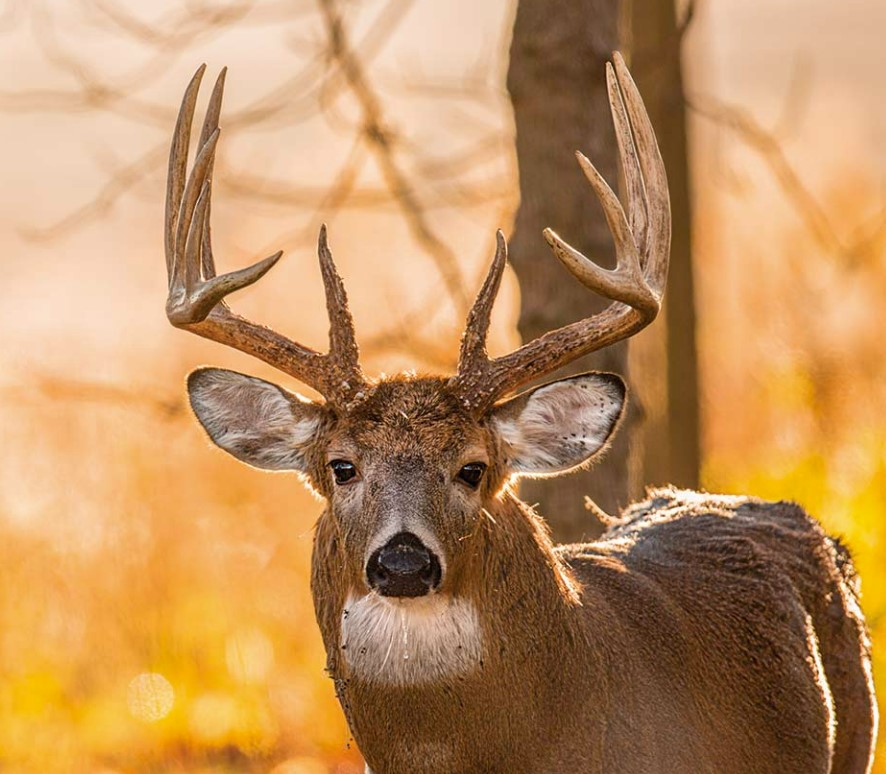There’s something about whitetail deer that has hunters flocking to the woods every year. Perhaps it’s the thrill of being so close to such an elusive animal, or maybe it’s the natural beauty of the forest and wild life they inhabit. Whatever your reason, there are numerous tactics you can use to increase your chance of success during deer season. Here are five tips to make sure you get an opportunity at the buck of a lifetime this year.
1) Step 1: Study the Land
If you want to come home with a buck, you need to do more than just sit in a tree stand. If you spend hours studying your hunting property it will pay off during season. Evaluating where deer travel during various times of day and year can help you identify hot spots where you can set up a stand later on. It’s also a good idea to study other hunters’ patterns, especially if hunting public land. Studying whitetail behavior is essential as well: when are they active? What types of cover attract them? Understanding their daily routines will help you pinpoint their most likely routes—and thus increase your chances of success.
2) Step 2: Choose a Pattern
There are a variety of different tactics you can use when hunting whitetail deer, but first it’s important to choose a pattern that is safe and effective. The best way to do so is by setting up several different blinds within 200 yards of each other and testing each out for effectiveness and safety. Although sitting still may sound easy, it requires patience and practice in order to get good at it. Remember: if you move too much, you will scare away your prey before they have time to come close enough for an accurate shot. Don’t forget to bring snacks and water with you!
3) Step 3: Establishing Stand Locations
Once you’ve identified a preferred hunting location or two, sit back and think about it carefully. Where is your ideal hunting location? Look to see if you have an open shot from any of your current stands. Look at maps and aerial photos of your area and evaluate possible stand locations. How will you get to those locations? What time of day do deer typically move in that area? If it’s in between food sources, how do they get there? Try to establish patterns of movement so you can make better decisions about where to hunt. Consider what types of cover are most prevalent throughout that area.
4) Step 4: Anticipate Changes
Whitetail deer are an active species. They tend to move around a lot and don’t stick in one place too long, making it hard to predict their next move. This is great news for hunters who want to bag a buck because it means that you’ll have to adapt as well. You should plan on hunting multiple areas, especially if you’re not getting any results. Just like human beings, whitetail deer have preferences about where they eat and drink, so changing your location could make all the difference. Also expect new strategies from Mother Nature: The wind direction is something that varies from time to time, which will force you (or at least me) to rethink my approach.
5) Step 5: Scout
Scout your hunting area to find out when deer are present and how to use that information to your advantage. Pay attention to what routes they take, where they go during times of day, and how much time elapses between sightings. Does a buck show up on a regular basis at a specific location? He’s probably bedding down nearby during that time. This is called patterning—identifying deer behavior patterns by being observant over time—and it’s an important part of every hunter’s strategy. Use these observations to formulate a plan of attack. You might also want to consider different types of hunting strategies, such as stand-hunting (sitting in one spot) or still-hunting (moving slowly through an area). Still-hunting requires more skill but can be more effective if you’re trying to get close enough for a clean shot. And don’t forget about your weapon: If you’re going after big game like whitetail deer, black bear or wild boar, carefully consider your choice of weapon and ammo. Practice until you can consistently deliver a 1″ group of five shots.
Texas Outdoors
Latest posts by Texas Outdoors (see all)
- Benefits of Two-Way Radios for Hiking and Camping – June 23, 2025
- What To Consider When Staying at Your First RV Campground – June 18, 2025
- A Quick Guide for the Different Off-Road Trail Ratings – June 11, 2025

Leave a Reply